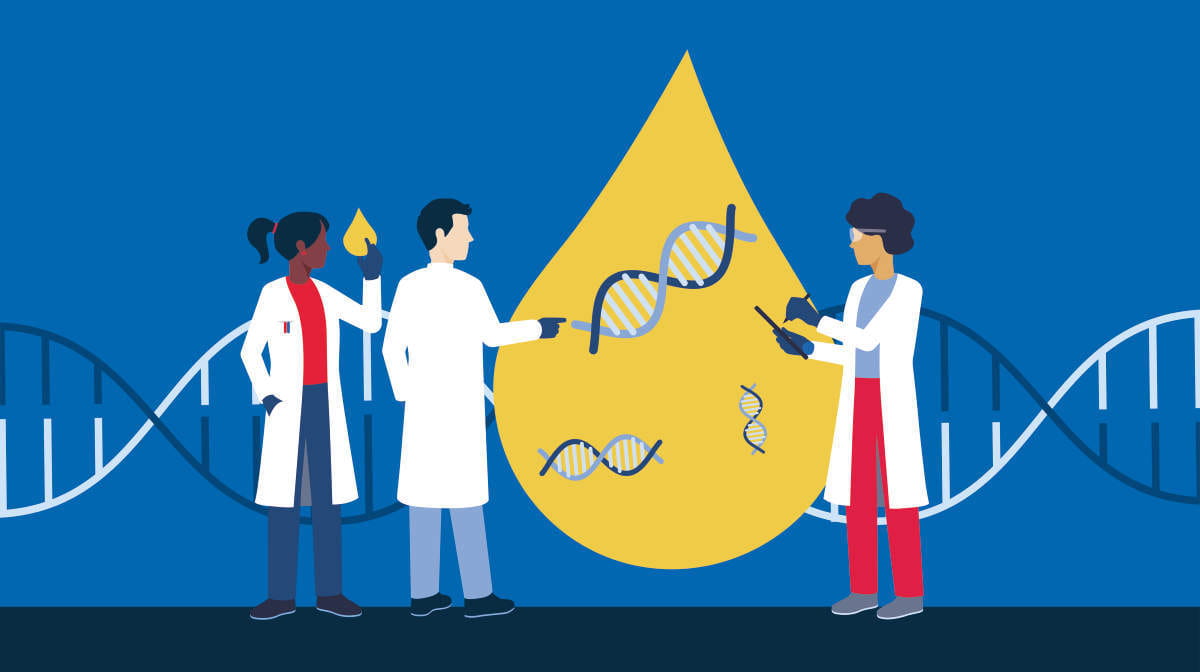Urine cfDNA: a new era for liquid biopsy research

Application of urine cfDNA in liquid biopsy research workflows
While initial liquid biopsy research primarily focused on blood-derived tumor biomarkers, such as circulating tumor DNA (ctDNA), recent studies have also identified cancer-derived nucleic acids also in urine. Urinary cell-free DNA (cfDNA) holds great promise, since urine collection is not just a truly non-invasive sample but also has shown to have complementary information to blood.
However, urine cfDNA analysis comes with several challenges, such as loss of target cfDNA due to the high activity of nucleic acid hydrolyzing enzymes, which are 100-fold more active in urine than to plasma. Dilution of target cfDNA is another critical issue, as urine can contain DNA from non-cancerous cells, inflammatory cells, or bacteria. This results in low overall concentrations of cfDNA in urine, which is why urine cfDNA stabilization and the use of highly sensitive detection techniques are required to obtain reliable results.
We have tested several downstream analyses for urine cfDNA, including digital PCR and next-generation sequencing (NGS) approaches in three cancer types (metastatic prostate cancer, colorectal cancer, and breast cancer) with and without urine stabilization. Under proper preanalytical conditions, urine can provide complementary information about a patient’s tumor that might be missed in plasma. Taken together, particularly in urogenital cancers, the sensitivity of liquid biopsy could be improved by urine cfDNA analyses, provided that standardized preanalytical workflows are used.
The PAXgene Urine Liquid Biopsy Set enables urine cfDNA analysis
Analysis of urine cfDNA can be challenging due to post-collection changes of the urine cfDNA profile. Optimized preanalytical workflows, including urine stabilization, are required for reliable urine cfDNA analysis. In this webinar, we want to introduce the first verified, complete, standardized preanalytical workflow for cell-free DNA (cfDNA) analysis from urine. You will learn about the importance of stabilization, transportation at room temperature, and ease of use using the PAXgene Urine Liquid Biopsy Set. Furthermore, we describe optimized options for automated and manual urine cfDNA isolation from stabilized urine with QIAGEN extraction kits and downstream technologies compatible with the isolated cfDNA.